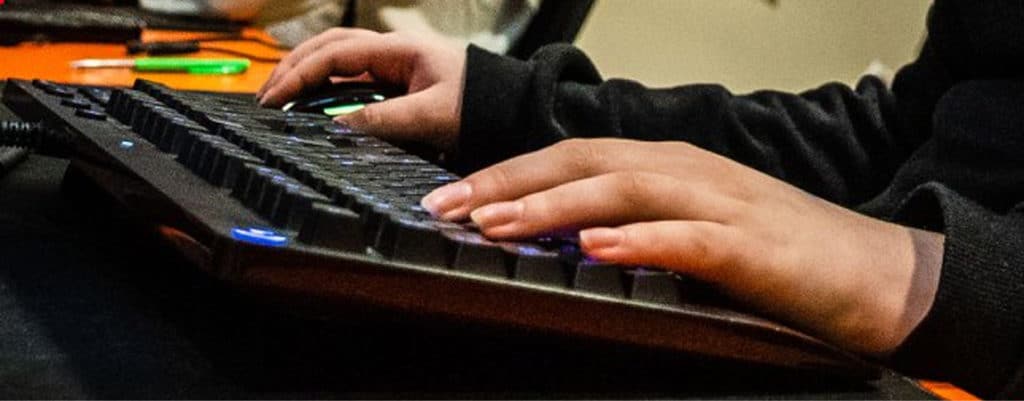Image source: FemaleLegends
More than half of women gamers say they mask their identity when playing online, according to a new survey.
Reach3 Insights and Lenovo surveyed 900 women across China, Germany and the US, and 98 men in the US, capturing quantitative and qualitative data – including video selfies – ‘in order to get a deep understanding of the experience of women gamers’.
The research found that 59% of women use either a non-gendered or male identity when playing games online to avoid conflict.
77% of women said they deal with at least some sort of frustration when gaming because of their gender. Judgements of skills, (70%), gatekeeping (65%) and patronising comments (50%) were the most reported types of comments women gamers said they received while gaming online.
In addition, 44% of women gamer respondents have received unsolicited relationship asks while gaming. And 71% of participants said that companies can foster more inclusive behaviors in gaming by having a greater presence of different groups in gaming ads.
The news comes after British Valorant host and esports journalist Yinsu Collins shared a clip of some of the abuse she receives while playing online.
Yinsu Collins told Esports News UK in a recent Valorant interview she was pleased Riot Games recently announced that it will record and review in-game voice chat when reported for harassment or hate speech.
“I’ve been a target for harassment and hate speech pretty much on a daily basis in-game,” she said. “There was a time where I didn’t speak at all, because I think there were a couple of really bad days. I was super down because I fucking love this game. I just couldn’t bring myself to reveal my identity and my voice, so that was sad.
“So any effort by Riot to come in and review in-game voice chat and crack down on it, I welcome it. I think it’s needed and I’m really happy they are taking steps towards it.”
In another recent Esports News UK interview, with EU League of Legends casters Noa and Carmeline, Carmeline said it’s important to call out sexist comments: “I will not stand by comments that attack me as a woman, there’s no excuse for that behaviour. Ultimately, we can’t teach people to be better if their upbringing doesn’t work in that direction. I do, however, think that everyone can contribute by stopping them right in their tracks and pointing out when a sexist comment is made, allowing them to see that acting like that is not acceptable by modern day standards.
“As a woman, I’d have to take so many extra steps to play comfortably. You are always going to be exposed to criticism, but there is also hate, and the kind that can destroy your self-esteem. I’m not a player, but I’d prefer to remain anonymous than expose myself to that, and I guess that’s what many other women feel like.”
A few years ago, Esports News UK interviewed CSGO player Hege ‘Hedje’ Botnen. She said ‘there’s more harassment’ in the lower ranks of games.
“When female players come into a lobby, they sometimes face this wall of harassment and can get talked down,” she said. “That can be very discouraging and give them the feeling it’s not a fun game to play. But at the highest level, there’s almost none of it. I have no idea why this is, but it’s damaging to be met with that kind of attitude when you first come into a game. The more women that play, it will have a trickle down effect and improve. But being a woman, it makes you an easy target.”
Other women CSGO players from Team Property told Esports News UK they never talk into the microphone when they play online with others in lobbies.
Mouse said: “I hold my hand on the microphone so my voice is like dark and I’m like *mumbles* (laughs). I don’t want them to know – I don’t want to ruin the situation, pretty much. For example, all my World of Warcraft characters, regardless of whether they’re male or female, they always have boy names. Felix, Simon, whatever. I have never named them girly names because then it makes it so obvious.”
Foxglove added: “We should encourage women to play more, and they should not be scared of playing just because they might get flamed by guys. I know many stop playing once they get flamed, because it’s not fun to sit there and get a shit-ton of abuse thrown at you.”
There are of course women-only esports tournaments out there. Late last year, Elisabetta of Derby’s Pyjama Guardians spoke about winning the NUEL’s LoL Women’s University final, saying “tournaments like this create a really good sense of community where women can play and thrive together”.
Last month, Rix.GG announced their ‘Lightning’ Valorant roster as part of drive to see women and marginalised gender players ‘compete at the highest levels of esports’.
Explore Our Trusted Gaming Resources
Discover essential guides to UK casino sites, betting platforms, and crypto casinos — updated for this year.
- Top Online Casinos UK 2025
- Top Crypto Casinos
- Best Bookmakers 2025
- Top No KYC Casinos UK 2025
- Non Gamstop Casino Sites

Dom is an award-winning writer and finalist of the Esports Journalist of the Year 2023 award. He has almost two decades of experience in journalism, and left Esports News UK in June 2025.
As a long-time gamer having first picked up the NES controller in the late ’80s, he has written for a range of publications including GamesTM, Nintendo Official Magazine, industry publication MCV and others. He also previously worked as head of content for the British Esports Federation.


